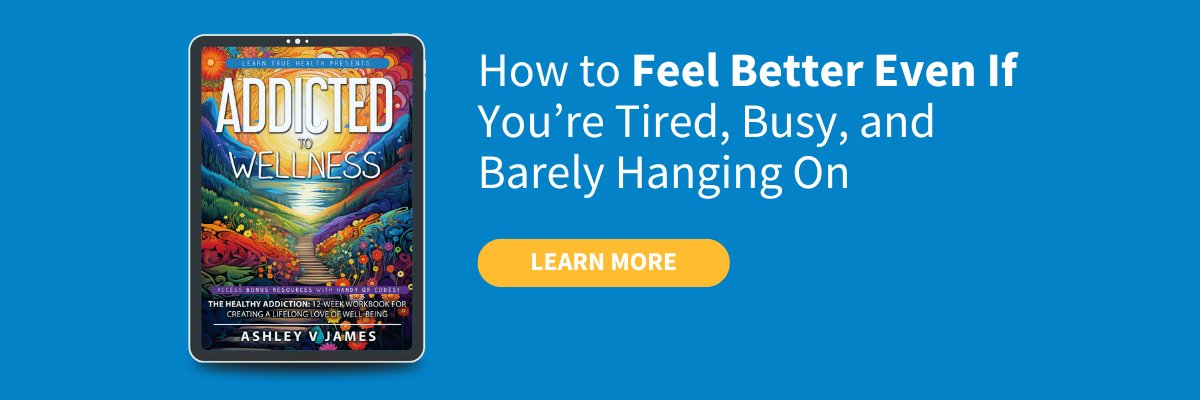248: SIBO And SIFO

Dr. Satish Rao and Ashley James
SIBO (Small Intestinal Bacterial Overgrowth) and SIFO (Small Intestinal Fungal Overgrowth) are two health conditions plaguing many people today. SIBO stands for small intestinal bacterial overgrowth and SIFO stands for small intestinal fungal overgrowth. Respected expert Dr. Satish Rao is here with us today to explain what SIBO and SIFO are all about and how to treat it.
This episode was hard for me to do since Dr. Satish Rao is an allopathic doctor. His way of treating SIBO and SIFO is different from experts in Natural Medicine, but his research about SIBO and SIFO is worth talking about.
I have been recently tackling topics about gut health and the best treatment for gut issues. So, I highly recommend everyone to listen to episodes 245 and 247.
Family of Physicians
Dr. Satish Rao came from a family of physicians. His father was a Professor of Medicine and a University Dean.
When he was young, Dr. Satish Rao recalls that his father used to carry around a Sheaffer pen with a white dot on it. He wanted the pen, but his father told him only doctors could have that pen. That apparently became Dr. Satish Rao's motivation to become a doctor.
Dr. Satish Rao pursued medical studies in India and took post-graduate studies in England. He, later on, discovered that deficiency of selenium causes cystic fibrosis and muscular dystrophy.
Dr. Satish Rao also learned about gastroenterology and focused on research as well as an essential area of the gut called Neurogastroenterology and motility. That branch of medicine was still in its infancy in the early 80s. Dr. Satish Rao was mentored by two outstanding professors and has helped many patients.
“We have been able to understand some key disorders and dysfunctions in the gut and find a remedy to help them. That's been my journey over the past 25 years,” said Dr. Satish Rao.
Understanding Nutrition
Medical doctors are not taught nutrition and how food plays a significant role in our gut health. We are just given drug after drug. Dr. Satish Rao, on the other hand, identified a new illness that is man-made because of drugs and over prescription. He's a very conventional doctor but is treated as an outsider by the community.
Dr. Satish Rao says he would love to implement diet and a healthy lifestyle as a solution for health problems. Having practiced in three different continents—India, U.K. and the United States, Dr. Satish Rao feels it is tough to teach people proper nutrition, especially in the United States.
“One of the hardest things I found in America is to change people's behavior, culture and eating habits. Every patient in India, asks me restrictions on their diet,” shares Dr. Satish Rao. “But in the United States, I never get that question. Even when I advise them, it is very hard for people to change.”
He adds,”I do believe there are tremendous things one can do to change their lifestyle and behavior and that can do along with healing. But it has to be done in tandem with other things that we can do as physicians and the prescription drugs. It cannot be done without it.”

Right Mindset
Dr. Satish Rao also makes it clear that in the long-term, it is not the drugs that are going to help and conquer the problem. He says it is probably their lifestyle issues that will give the long-term remedy.
Unfortunately, American and Canadian cultures are similar. Americans and Canadians are not raised to see that their lifestyle has an impact on their health. Countries like India, on the other hand, is more in touch with Holistic healing.
“In the U.K., the patient I had were very willing to institute changes and take on recommendations. In the United States, I don't think people like to change. They may, under some duress but it's not going to come soon,” predicted Dr. Satish Rao.
We have seen a difference in the last five years. I remember having a demographer on the show who said the millennials—aged 14 to 33, have now outnumbered the baby boomers and the generation in between. Millenials have a different mindset, and I hope they would change their mind before it's too late.
Symptoms of SIBO and SIFO
Dr. Satish Rao says he tends to see a challenging group of SIBO and SIFO patients from all over the country and internationally as well. He says people suffering from SIBO and SIFO usually have significant unexplained symptoms of bloating, pain and gas.
“To characterize if there was indeed an infection in the gut, we look inside the stomach lining or small bowel lining and see if there is anything unusual. Then we'll take biopsies. Or if there is celiac disease, we will take biopsies, too,” said Dr. Satish Rao.
According to Dr. Satish Rao, there's also a test wherein it takes 24 hours to study a patient's gut motility. This is to see if the muscles and nerves are working or not. Another option is taking juice from the small bowel to study if there is an infection in the patient's small bowel. Dr. Satish Rao then sends the specimen to the microbiology lab to see if it would grow any bacteria or fungal organisms.
Test Findings
Dr. Satish Rao reveals that he has encountered different findings over the years. In the mid-90s, doctors will treat patients with antibiotics if there is a bacterial infection. Treatment for fungus it is administered in another way.
Then fast forward 2005 or 2006, Dr. Satish Rao thought of doing further research on SIBO and SIFO. The results became quite controversial.
When Dr. Satish Rao and his team looked at the data carefully, they found that a quarter of the patients had exclusive fungal overgrowth. A quarter had a mix of bacteria and fungus. Another group had pure bacteria, and 30 to 40% of patients were clean.
“Then I tried to publish that work. But lo and behold, if you're ahead of the curve in the medical literature, you get frown upon. No one would accept it. They wanted to publish my work on SIBO thought my research about fungus was rubbish,” said Dr. Satish Rao.
In around 2010, Dr. Satish Rao finally found a very reputable journal that was willing to publish his findings. For the first time, the SIBO and SIFO were published as a major G.I. article. Now, there was more recognition that this is a valid entity.

When Should We Be Alarmed?
Dr. Satish Rao says that a significant growth pertains to a thousand colony-forming fungi per milliliter of fluid or more. Some of them grow a million or more. Aside from that, Dr. Satish Rao says we should also remember the area from where it is growing.
“The stomach is full of hydrochloric acid. It has a strong way of attacking and killing bacteria, fungus, and everything,” explains Dr. Satish Rao. “The duodenum is the tube that comes out of the stomach, and we are sampling within the first 6-9 in of the stomach.”
He adds, “It is an area continuously bathed in stomach acid, and it has a very high exposure to the acidic environment. So, in that area, there should be no bacteria or fungus. If there is, then there is a problem.”
Unfortunately, Dr. Satish Rao says, looking at symptoms profiles, we are not able to distinguish who has this condition or not. Those who have and don't have an overgrowth have very similar symptom profiles. And he says that the only way to separate it is by doing the culture.
Understanding Fungus Infection
Dr. Satish Rao says that fungus infection can be anywhere in the body. Typically, he says people who have an underlying depressed immune system, like with cancer, lymphoma, leukemia, HIV infection, are strong candidates.
“These are a prime group of individuals who don't have the right immunity to ward off infection from fungus. And fungus is naturally present on our skin, in our mouth and areas exposed to the environment. It is normal for them to be there,” Dr. Satish Rao said.
He adds, “But when something happens inside the body like an infection, diabetes, overuse of steroids or antibiotics, it is a risk for fungus infection. But two factors stood out about our patients. One was the use of proton pump inhibitor and the presence of small intestinal dysmotility. They increase the risk to develop SIFO.”
Impact of Drugs
It is not surprising that the overuse of drugs has an impact on the gut. According to Dr. Satish Rao, the gut has a very interesting program of small intestinal dysmotility, typically the upper gut.
Dr. Satish Rao explains that every 90 minutes or so, as long as you remain fasting, there is a beautiful, strong, sweeping process that goes through the gut and sweeps its way through the colon. It happens every 60 to 90 minutes.
If this pattern doesn't happen, they say you have a problem in your small bowel. This means you no longer have the capability to clean its contents.
“The problem of SIBO and SIFO is unfortunately man-made. I have been practicing G.I. for 25 to 30 years, and I don't believe I've seen that many patients with these kinds of symptoms for a long time,” said Dr. Satish Rao. “It's no question that we recognize it, and we are diagnosing it. But we were never using these powerful drugs for this length of time.”
Recommended Treatment
Dr. Satish Rao usually tries to eradicate the problem through a 3-week course of antifungal therapy with fluconazole. Fluconazole gets absorbed into the bloodstream and acts on the problem. Dr. Satish Rao explains that he has to maintain people on antibiotics because of the underlying gut motility problem. Plus, patients need long-term treatment.
“The other component of treatment gets rid of any potential and incriminating factors. If they have a motility problem, I can try and place them on drugs that stimulate motility. Unfortunately, we don't have many good drugs, so I try to give those drugs in small amounts,” said Dr. Satish Rao.
As for administering intravenous magnesium, Dr. Satish Rao has not used it to treat patients. He says magnesium tends to have a calming effect rather than a stimulating effect on gut motility. So that is why it is not Dr. Satish Rao's drug of choice for his patients.
Role Of Food
Dr. Satish Rao recommends more acidic-containing food because the fungus hates an acidic environment. This way, we can kill off the fungal bacteria through acidic foods.
“But more acidic food can also trigger reflux symptoms. There should be a fine balance between acidic and alkaline foods. Look also at your tolerance for different food products. I usually have my patients do a three-day food chart then come up with a formula diet,” clarifies Dr. Satish Rao.

Other Concerns
Dr. Satish Rao also reveals that people who had surgery in the gut, particularly colon surgery, is the classic set up for SIBO. People who had this surgery have disrupted the normal barriers between the small and large bowel. But despite that, Dr. Satish Rao was quick to explain that he's not disputing the reason for the surgery. He's just saying that unfortunately, that group of individuals are highly susceptible and prone to SIBO and SIFO.
“Most patients go on lifelong antibiotics because we have no other way of preventing it. But I don't treat them with large doses. I recommend maintenance doses and the easiest regime usually a week to ten days or after a month. There are only a few who need continuously,” said Dr. Satish Rao.
Bio
Dr. Satish Rao received his MD from Osmania Medical College, Hyderabad, India, his Ph.D. from the University of Sheffield, U.K., and the Fellowship of the Royal College of Physicians (FRCP) in London, UK, in 1997. Having spent 20 years at Iowa where he was a Professor of Medicine and Director, Neurogastroenterology and GI Motility and Biofeedback Program, University of Iowa Carver College of Medicine, Iowa City, Dr. Satish Rao recently moved to Medical College of Georgia, Georgia Regents University, Augusta, Georgia where he is a Professor of Medicine, Division Chief, Gastroenterology/Hepatology and Founding Director, Digestive Health Center.
Dr. Satish Rao is one of a rare breed of academicians who has excelled as an outstanding researcher, distinguished educator and as a Master Clinician. His research interests focus on the pathophysiology and treatment of IBS, food intolerance particularly fructose intolerance, constipation and fecal incontinence and visceral pain, particularly esophageal chest pain.
Dr. Satish Rao is the only physician to date who has received all three meritorious honors from the AGA: the AGA Distinguished Clinician Award, AGA Masters Award for Outstanding Clinical Research, and the AGA Distinguished Educator Award. In 2005, he received an ACG Auxiliary Research Award, and in 2007 the ACG Novartis Motility research award for the best research paper.
Dr. Satish Rao has edited several books, Disorders of the Anorectum (2001), Anorectal and Pelvic Floor disorders (2008) for Gastroenterology Clinics of North America, Gastrointestinal Motility- Tests and problem-Oriented Approach and GI Motility Testing-a Laboratory and Office Handbook (2010, Co-editor). He has published over 300 articles.
Dr. Satish Rao is an astute clinician with an international reputation and has been selected as one of the “Best Doctors in America” and America's Top Doctors for over 15 years. He is Past President of the American Neurogastroenterology & Motility society.
Get Connected With Dr. Satish Rao:
Recommended links:
Episode 226 – Demography – Kenneth Gronbach
Episode 245 – Sunlighten Saunas – Connie Zack
Episode 247 – Gut Issue – Evan Brand
Subscribe To Our YouTube Channel
SIBO And SIFO Dr. Satish Rao & Ashley James – #248
Join the Learn True Health Community & Support Us on Patreon
Order High-Quality Supplements
Join Our Facebook Community Group
Visit Our YouTube Channel
Share:
Related Posts
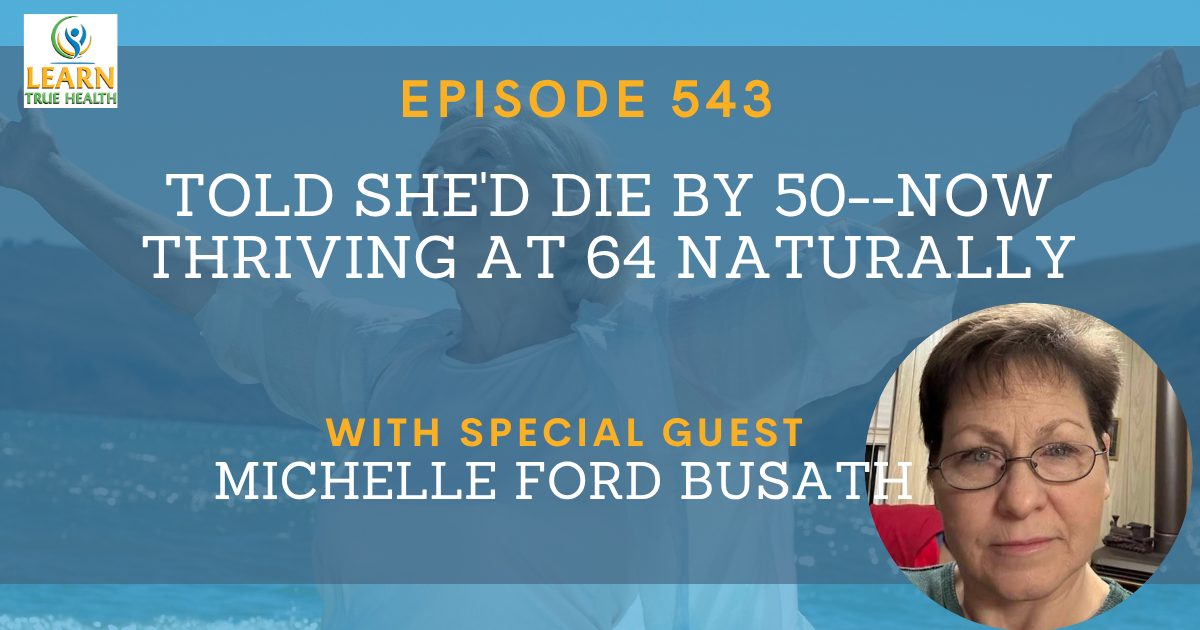
543: Told She’d Die by 50–Now Thriving at 64 Naturally
After decades of chronic illness, 40+ diagnoses, and 37 daily medications, Michelle Ford Busath found true healing through holistic nutrition. In this powerful episode of
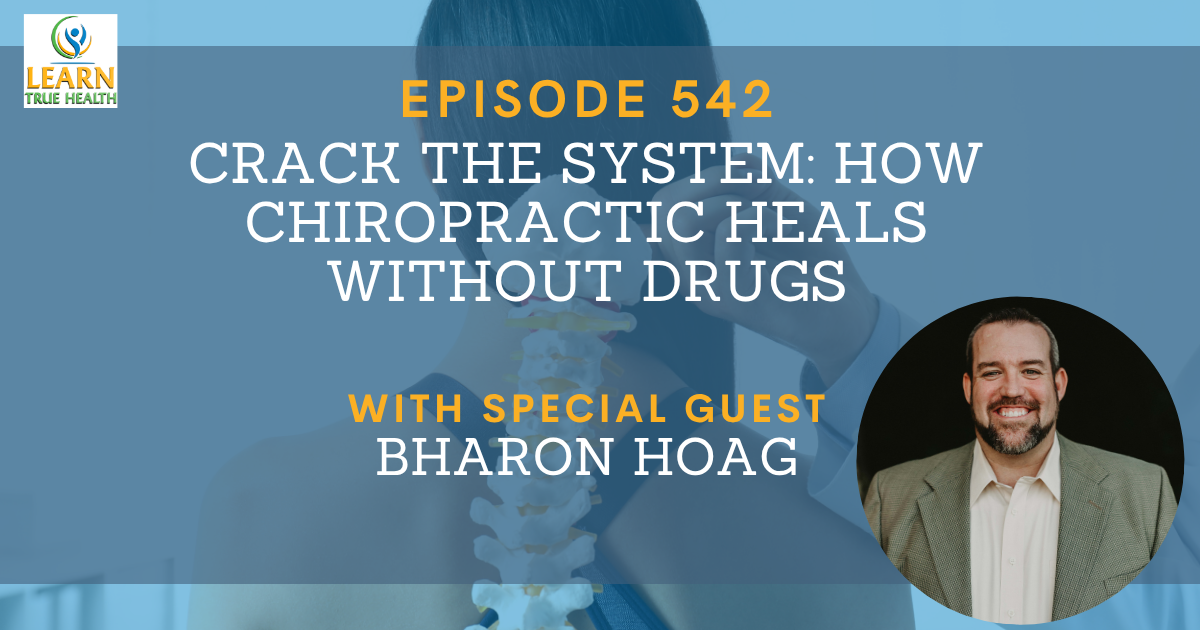
542: Crack the System: How Chiropractic Heals Without Drugs
Chiropractic care is often misunderstood, but this episode of the Learn True Health podcast sheds light on its powerful benefits, scientific backing, and the extensive
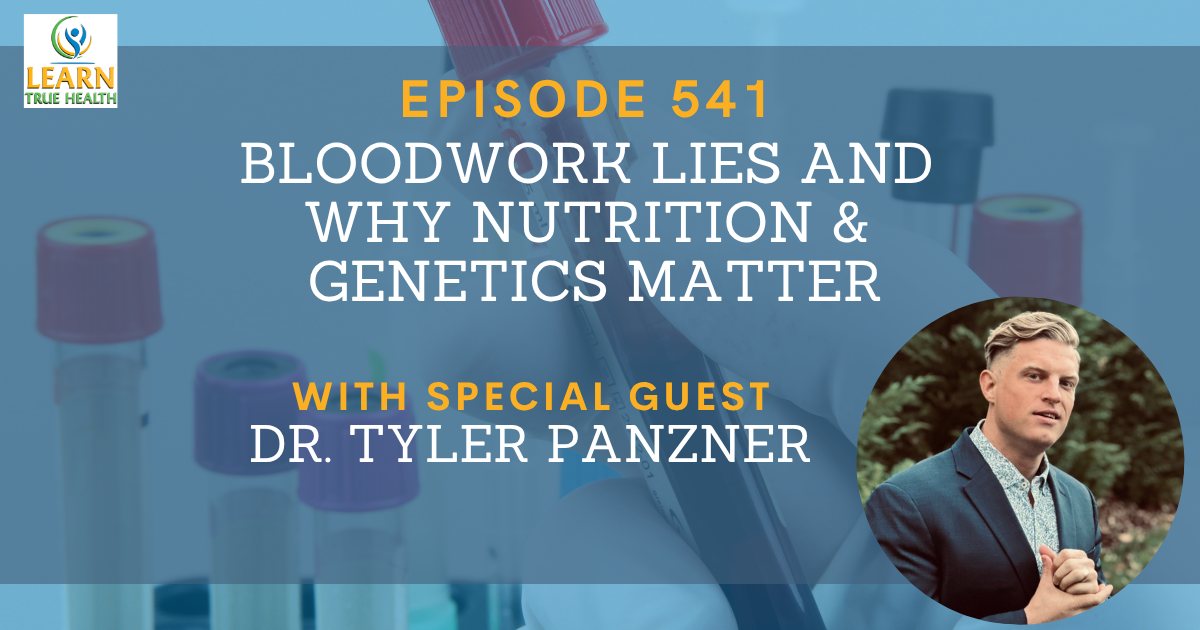
541: Bloodwork Lies and Why Nutrition & Genetics Matter, Dr. Tyler Panzner
In this fascinating and deeply informative episode, Dr. Tyler Panzner—PhD scientist and functional genetic expert—joins us to explore the groundbreaking world of personalized health through
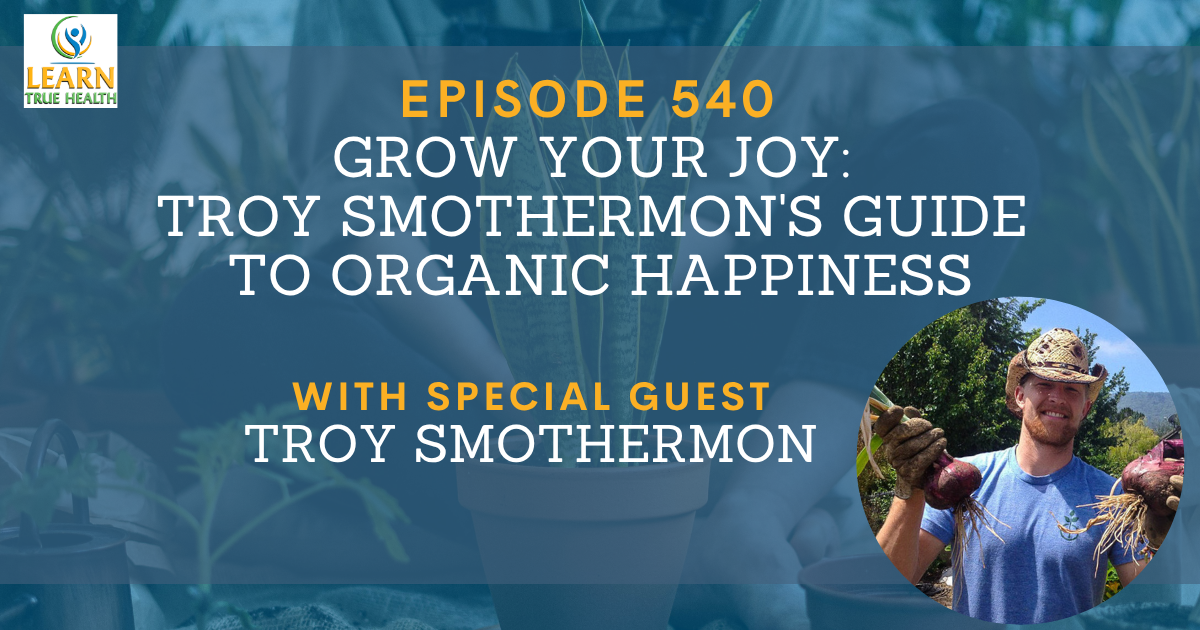
540: Grow your Joy: Troy Smothermon’s Guide to Organic Happiness
Gardening isn’t just about growing food — it’s about reconnecting with nature, boosting your mental and physical health, and cultivating a sense of community and

